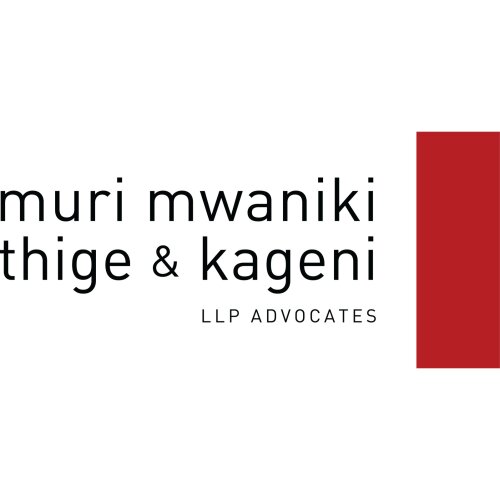Best Estate Planning Lawyers in Kenya
Share your needs with us, get contacted by law firms.
Free. Takes 2 min.
Or refine your search by selecting a city:
List of the best lawyers in Kenya
Kenya Estate Planning Legal Articles
Browse our 1 legal article about Estate Planning in Kenya written by expert lawyers.
- The Law of Succession in Kenya: Testate and Intestate Succession
- The Law of Succession is the branch of law that deals with inheritance. This area of law exists because people wish to determine how their earthly belongings (estate) are dealt with after their demise. What is the applicable law for succession matters in Kenya?The Law of Succession Act of 1981... Read more →
About Estate Planning Law in Kenya
Estate planning in Kenya involves the legal process of arranging for the management and disposal of a person's estate during their life and after death. This planning comes into play through legal instruments such as wills, trusts, and powers of attorney. The aim is to responsibly manage an individual’s assets, ensuring that their wishes are carried out and that there are minimal legal complications for their beneficiaries. The principal legislation governing estate planning in Kenya includes the Law of Succession Act, the Trustees Act, and the Land Act, among others.
Why You May Need a Lawyer
In the realm of estate planning, legal intricacies can be complex, making the assistance of a lawyer vital. Common situations where you might need legal help include:
- Drafting a will to ensure your assets are distributed according to your wishes.
- Establishing a trust to manage assets for beneficiaries who might not yet be capable.
- Navigating the probate process which involves court-supervised handling of a deceased person's estate.
- Managing inter-family disputes over inheritance where impartial legal guidance can help resolve conflicts.
- Assisting with tax planning to ensure that your estate is not unduly taxed.
- Advising on legal requirements for transferring property or assets.
Local Laws Overview
Several key legal aspects influence estate planning in Kenya:
- Law of Succession Act: Governs the distribution of estates, including intestate succession, i.e., where there is no will in place.
- Wills: Legally recognized written documents that dictate how a person's assets should be distributed upon death. Must adhere to the formal requirements as per the Act.
- Trusts: Used to manage properties and assets for specific beneficiaries, often administered by a trustee.
- Probate and Administration: Ensures estate distribution is in line with the deceased person's wishes when a will is available or according to the law if not.
- Family Protection: The law allows dependents to seek maintenance and provision from the estate.
- Property Rights: Includes inheritance rights, joint ownership, and land succession with respect to customary laws that may apply.
Frequently Asked Questions
What is a will, and why do I need one?
A will is a legal document that sets out your wishes regarding the distribution of your assets after death. It's crucial as it ensures that your estate is managed and distributed according to your desires.
Can I change my will once it's made?
Yes, you can amend your will any time by creating a codicil or a new will entirely, as long as you are mentally competent to do so.
What happens if I die without a will?
If you die intestate (without a will), your estate will be distributed according to the rules of intestacy under the Law of Succession Act, which may not reflect your personal desires.
How long does the probate process take?
The duration of the probate process varies, based on the size of the estate, complexity of the will, and any legal challenges that arise, but it can take several months to years.
Are verbal wills recognized in Kenya?
Under certain circumstances, oral wills (known as nuncupative wills) made before two or more competent witnesses are recognized, but they come with strict evidentiary requirements.
What's the difference between a will and a trust?
A will takes effect upon death, setting out distribution instructions for your assets, whereas a trust is a legal arrangement where a trustee holds and administers the property for beneficiaries and can be effective while you're still living.
What taxes may apply to my estate?
Kenya does not levy inheritance tax, but stamp duty and capital gains tax can apply to asset transfers, requiring careful planning to mitigate.
Can customary law affect my estate plan?
Yes, where customary law dictates inheritance matters, such as property succession, it can affect estate planning. Thus, understanding specific local customs is important.
What is a power of attorney, and do I need one?
A power of attorney allows someone else to manage your affairs if you're incapacitated. It’s optional but useful for ensuring the continuity of asset management.
How can disputes over wills be resolved?
Disputes are often resolved through mediation, negotiation, or court intervention if necessary.
Additional Resources
Several resources and organizations can support estate planning efforts:
- The Law Society of Kenya (LSK): Provides details and resources for locating experienced estate planning lawyers.
- The Kenya Judiciary: The official judiciary provides guidelines and information on probate operations and inheritance laws.
- Office of the Public Trustee: Handles administration of estates where there's no willing executor available.
- Kenya Revenue Authority: Valuable for understanding tax implications related to inheritance and estate planning.
- Kenya Bankers Association: Can assist with understanding asset transfer and financial planning as part of estate planning.
Next Steps
To proceed with estate planning effectively, consider taking the following steps:
- Consult with a Lawyer: Engaging a legal expert who specializes in estate planning can personalize the process according to your needs and ensure compliance with laws.
- Gather Necessary Documents: Collate all relevant personal, financial, and asset-related documents to aid the planning process.
- Define Your Goals: Clearly outline your wishes and objectives regarding asset distribution and management.
- Consider Future Revisions: Regularly re-evaluate and amend your estate plan to reflect life changes, such as marriages, births or financial shifts.
Lawzana helps you find the best lawyers and law firms in Kenya through a curated and pre-screened list of qualified legal professionals. Our platform offers rankings and detailed profiles of attorneys and law firms, allowing you to compare based on practice areas, including Estate Planning, experience, and client feedback.
Each profile includes a description of the firm's areas of practice, client reviews, team members and partners, year of establishment, spoken languages, office locations, contact information, social media presence, and any published articles or resources. Most firms on our platform speak English and are experienced in both local and international legal matters.
Get a quote from top-rated law firms in Kenya — quickly, securely, and without unnecessary hassle.
Disclaimer:
The information provided on this page is for general informational purposes only and does not constitute legal advice. While we strive to ensure the accuracy and relevance of the content, legal information may change over time, and interpretations of the law can vary. You should always consult with a qualified legal professional for advice specific to your situation.
We disclaim all liability for actions taken or not taken based on the content of this page. If you believe any information is incorrect or outdated, please contact us, and we will review and update it where appropriate.
Browse estate planning law firms by city in Kenya
Refine your search by selecting a city.

















